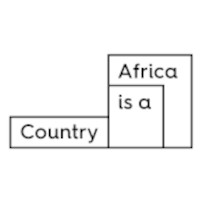It may seem obvious that a real transition to renewable energies is urgent, but not all transitions are the same or fair.
Wind turbine farm Tunisia. Image credit Dana Smillie for the World Bank via Flickr CC BY-NC-ND 2.0.
A study on energy transition in Tunisia, conducted by the Working Group for Energy Democracy and the Tunisian Platform for Alternatives in collaboration with the Transnational Institute reminds us that energy should not be discerned as a profit-making commodity, but an inalienable right. The production and distribution of energy must be based primarily on the principles of distributive justice and popular sovereignty, contrary to the imperatives and deficiencies of the global free-trade system that disregards local social and ecological needs.
The recent discussions at the UN Climate Change Conference (COP)27 concur with the urgency for climate change mitigation and adaptation; they continue pushing towards a liberalized energy model in North Africa, including Tunisia. Tunisian successive governments have been furthering liberalization and privatization agendas through legal and fiscal incentives offered to national and international investors to produce green energy.
Reconfiguration of the energy sector in Tunisia
Since Tunisia’s independence, energy production and distribution has been public, administered by the Tunisian Company of Electricity and Gas (STEG), which has benefited from state subsidies to cover the costs of electricity production and gas supplies.
After the 2011 revolution, international financial institutions challenged energy control by the public sector, targeting the STEG monopoly over national power generation. The International Monetary Fund’s four-year loan of 2013 inaugurated a plan for privatizing the production of electricity from renewable resources.
Several international entities contributed to the reconfiguration of the energy landscape in Tunisia by conducting studies prioritizing energy privatization in the county. For instance, the German Agency for International Cooperation (GIZ), through its connections with the Ministry of Energy and other national bodies, is an integral decision-maker in the field of renewable energy in Tunisia and provided “technical assistance” for the country to develop legislation directed towards the privatization of renewable energy. The Italian institution RES4Med/Africa, conducted studies on energy investments in the country and addressed recommendations to the Tunisian government based on the feedback of Italian investors.
Moreover, the World Bank started setting conditionalities for liberalizing electricity production from renewable energy and facilitating the process. In its 2021 report on Tunisia “Freeing Economy for Shared Prosperity,” a series of recommendations were submitted to Tunisia’s government after consultation with private companies. For example, a letter addressed by the company UPC North Africa Renewables to the President of Tunisia in 2017, asked for more facilitation of the investment process regarding the legal framework, contracts, and land issues.
Hindering the Tunisian public sector
After 2014, the government partially divested from subsidizing gas costs following some donors’ recommendations. The STEG was then confronted with financial imbalances widening the deficit of its annual budget, especially with the dramatic devaluation of the Tunisian currency (dinar). It was therefore forced to resort to external loans to purchase natural gas and develop its energy infrastructure.
The successive Tunisian governments laid the legislative groundwork to remove barriers for private investments in renewable energy, formalized in Law No. 2015-12 on renewable energies. Accordingly, private companies have been allowed to produce electricity for self-consumption, and to sell it to consumers through the STEG as a mediator. In 2015, the final draft of the Tunisian Solar Plan (PST) was published, with the main goal of achieving a rate of 30% of electricity production from renewable energy by 2030. This plan also relies on private investment and the so-called green electricity market.
These mechanisms enabled companies to benefit from funding, tax exemptions, and access to land for renewable energy projects. Additionally, the new law on energy renewables underwent reviews and was amended in 2019 to include two main provisions that allow private companies to market electricity directly to industrial energy consumers and exploit agricultural lands for renewable energy projects. Shifting agricultural lands to renewable energy manufacturers may raise serious concerns about food insecurity; an issue that the COVID-19 pandemic and the war in Ukraine has laid bare. Wouldn’t it be wiser for Tunisia to ensure food and energy locally, rather than benefiting foreign investors?
Injustice patterns beneath the surface of green energy
Certain renewable energy projects have already raised serious social and economic concerns, including those related to land and resource grabbing, in countries known as “Global South.” These projects are mainly targeting vast rural areas required to install equipment for large-scale renewable energy projects, and from where land and resources are grabbed, leading to some socio-ecological conflicts not too dissimilar to mining and fossil-fuel projects.
In fact, the Tunisian government started developing legal loopholes to facilitate the process of access to land for investors in the energy sector. The state started claiming and seizing agricultural lands cast as “low-yielding” and offering them to international investors. This was the case for concessions granted in 2021 in several regions of the country. These include Segdoud (Gafsa) for investors Engie (France) and Nareva (Morocco); El Moutbasta (Kairouan) for the benefit of Emirati and Chinese investors; as well as for other projects. This pattern brings us back to the early 2000s, to Borj Salhi where the first wind farm in the country was installed on land confiscated from local populations. This approach adopted by the public authorities while dealing with land confiscation reveals much about what is happening today.
While the public sector has guaranteed electrification for all Tunisian people for decades, investments in renewable energies introduced a new trend premised upon strong profitability. The role of STEG will become very limited as public-private partnerships are increasingly imposed. Intermittency of renewable energy is to be compensated by the STEG, entailing additional costs from which private investors are exempt. That is to say, the population will bear the costs. Furthermore, foreign companies will accelerate the dissolution of the Tunisian industrial base due to unequal competition, which will deprive small and medium enterprises of their share in the renewable energy market. This environment will not only turn electricity into a commodity, but also allow investors to accumulate profits by reducing production costs, and by forcing Tunisian people to bear the burden of gradual increases in electricity prices.
What are the alternatives?
The current energy model is informed by classic power relationships, blind profit-making logic, and excessive consumerism. Against this one-dimensional model, another model is urgently needed, one that is based on cooperation between producers and consumers and on horizontal relations ensuring the involvement of different actors. Here, energy is considered as a right for all, but also a fundamentally political issue that must break with private/public dualism.
In order to assert sovereignty and achieve a real energy democracy, Tunisia should strengthen the role of STEG in electricity production. Moreover, participatory forms of financing would enable public utilities to acquire a certain degree of autonomy in designing projects, away from any conditions imposed by international financial institutions.
Investments in renewable energies must certainly be encouraged in order to shift from fossil fuels. These investments must mobilize funding for STEG through a participatory financing scheme based on national contribution, redirecting energy production to prioritize local access and consumption, and gradually reducing imports.
Efficient energy democracy also necessitates cooperation between different local actors capable of shaking up the status quo and effectively contributing to the actualization of this new model. In this perspective, different actors can strongly counter the neoliberal energy model and rebuild equitable societal distribution. Because of their positioning within public institutions, trade unions have great capacity to influence narratives and present alternatives that can be imposed from within. Civil society, social movements, and progressive political parties are also a force capable of exerting substantial pressure on the current energy landscape. Through advocacy efforts and alliances, they have the potential to create a constructive dialogue on what’s happening on the ground. Likewise, communities settled in proximity to renewable energy projects must have a say on the design and implementation of energy projects on their lands. Small farmers and self-managed collectives can weigh against the designs and schemes set up by foreign investors.
Ultimately, the struggle for energy democracy in Tunisia and beyond is about fighting against the capitalist system, reclaiming the rights of the people, and breaking with extractivist practices in order to guarantee the country’s and population’s energy sovereignty.






